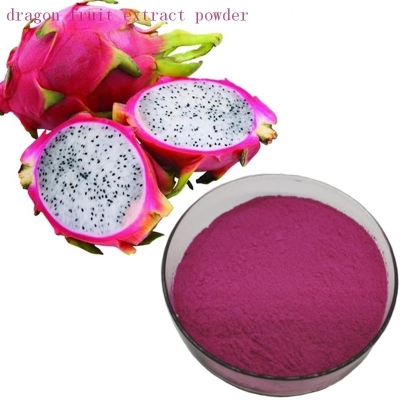The exotic fruit produced by the ocean is a loss of $300 million a year for Beijing's "descendants"
-
Last Update: 2021-02-05
-
Source: Internet
-
Author: User
Search more information of high quality chemicals, good prices and reliable suppliers, visit
www.echemi.com
new Zealand kiwi fruit advertisement with golden flesh and splashes of juice, the public must be no stranger to it. But the advertisement will never tell you: the best-selling world of New Zealand kiwi fruit, its "parents" are Chinese, "mother" is also from Beijing.this
more than
30 years ago, the domestic awareness of the protection of wild kiwi genetic resources is weak, so that the loss of overseas consequences. There are many similar examples. Today, beijing suburbs of wild kiwi, wild soybeans, licorice, jaundice and other
11
kinds of crops, selected in the "National List of Key Protection of Agricultural Wild Plant Resources", the city is stepping up the mapping of resources, the future will build a permanent protection of the species bank.lost an annual loss of
3
billion U.S. dollars the reporter came to the municipal agricultural bureau environmental monitoring station responsible for the protection of the city's agricultural wild plants. Referring to the case of kiwi fruit, the staff sighed, "It's a profound counter-textbook." " go back more than a hundred years. It was
1905
, a New Zealand female teacher named Isabel, thousands of miles away to visit her brother in Wuhan, China, the chance to taste the delicious Chinese kiwi, for a long time can not be forgotten, so the kiwi seeds brought back to New Zealand, and transferred to the local fruit tree experts. Thanks to New Zealand's special volcanic rock and soil, the soil is soft and fertile, ideal for kiwi growth, and soon sprouted throughout New Zealand, where more than
,2700,
farmers with large tracts of land have grown, opening up a new fruit industry that has attracted worldwide attention.Half a century later
When New Zealand scientists visited China in 1977 and
, they collected unique wild kiwi seeds from the Beijing Botanical Garden, the Plant Institute in Guilin, Guangxi, and wild areas in southern and central China and brought them home for planting in New Zealand's Horticultural Research Park. After many years of research and planting, finally produced in Beijing with yellow flesh and good taste of the mother plant, as well as a large and juicy fruit from Guilin, the father plant, jointly cultivate high-quality and high-yielding kiwi varieties, named "New Zealand golden kiwi fruit", quickly became popular after the market, best-selling around the world, so far each year for its foreign exchange of
330 million U
Now, back to the "hometown" of China's New Zealand kiwi fruit, more than 10 times more expensive than
-
kiwi."This is our resource, but to others 'made a wedding dress'." It's too weak to eat in seed resource conservation. The staff said.this is not the most "painful" lesson. In the
50s
, soybean cystic worm disease caused the U.S. soybean production to suffer, but American scientists in China's wild soybeans - "Beijing Little Black Bean", found the gene against the disease, making the United States leapt to become the first country to surpass China's soybean production.In the
70s
, when kiwi seeds were lost, China's wild soybean genetic material was also lost to the United States, where it was obtained by Monsanto, the world's seeding giant, and a "labeled gene" was discovered to patent it, making billions of dollars a year in profits.soybeans are endangered, licorice is scarce dead sheep to make up. The Ministry of Agriculture has issued the "National List of Key Protection of Agricultural Wild Plant Resources", the city's existing
1790
species of wild plants, of which
11
were selected, respectively: wild soybeans, wild kiwis, northeast teaseeds, licorice, mackerba, jaundice, jaundice, hedgehogs, flavons, hebei pears and lancorn.investigation of
11
wild plants began quietly on the outskirts of Beijing last year. The environmental monitoring station of the Municipal Agriculture Bureau, in
9,
townships in Yanqing County and Mentougou District, launched the investigation of wild soybeans and licorice.survey shows that due to the unique biological characteristics and the living environment conditions are more demanding, the "King of Medicine" reputation of licorice distribution in the city has been extremely rare, the most endangered, only in Yanqing, Mentougou sporadic distribution, in a year staff found only
4,
populations, a total of about
400
strains. These remaining licorice, but also face the threat of land reclamation, poaching and other human destruction, urgent protection.present, due to the impact of the national concept of "heavy grain and grass" and the increase of the reclamation index, as the "ancestor" of soybean cultivation today, the area of wild soybeans is also decreasing year by year, has become an endangered species. In Beijing, only the Wild Duck Lake National Wetland Park Reserve can better protect the wild soybean population, the rest of the wild soybean population is distributed in the collective or farmers contracted land, the possibility of damage is greater.outings cut branches andother agricultural wild plants, which are now under way. In the future, the city will focus on the protection of
11
species of agricultural wild plants, the construction of a species resource bank, the retention of their good genes, while working closely with the customs departments to ensure that the quality resources do not outflow.Ouyang Xihui, head of the environmental monitoring station of the Agricultural Bureau ofCity, told reporters that agricultural wild plants in the long-term natural selection process has formed a wealth of excellent characteristics, containing a large number of high-yield, high-quality, disease-resistant insects, drought-resistant, cold-resistant, barren, environmentally friendly and other non-renewable excellent genes, is an important material basis for China's genetic breeding and biotechnology research, is an important component of biodiversity, is a strategic resource for sustainable development of the country.as citizens, we should also raise the awareness of ecological environment protection, with practical actions to protect national resources, the simplest way is, outings do not fold branches. Ouyang Xihui reminded that, because the habitat of agricultural wild plants is also mostly famous scenic areas, such as: Blossom Mountain, Fogling Mountain, Wild Duck Lake, so in the outing, the public must remember not to arbitrarily damage plants, pick wild flowers, avoid damage to wild plant resources, at the same time, civilized travel, do not litter, especially plastic bags and other packaging, so as not to destroy the wild plants to survive the environment.
This article is an English version of an article which is originally in the Chinese language on echemi.com and is provided for information purposes only.
This website makes no representation or warranty of any kind, either expressed or implied, as to the accuracy, completeness ownership or reliability of
the article or any translations thereof. If you have any concerns or complaints relating to the article, please send an email, providing a detailed
description of the concern or complaint, to
service@echemi.com. A staff member will contact you within 5 working days. Once verified, infringing content
will be removed immediately.







